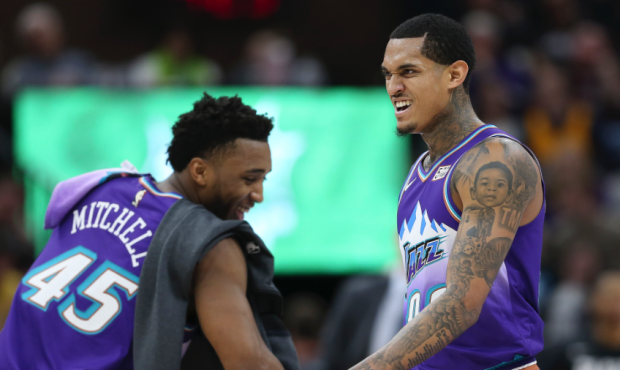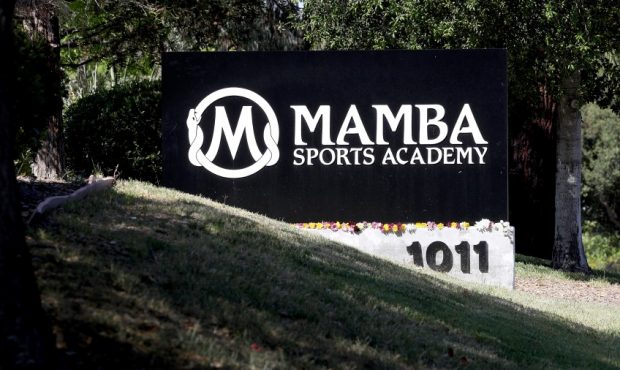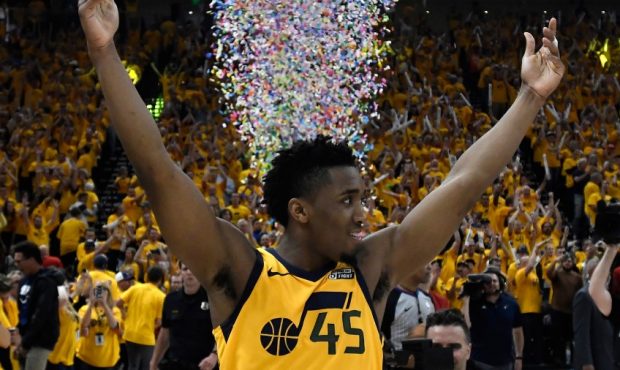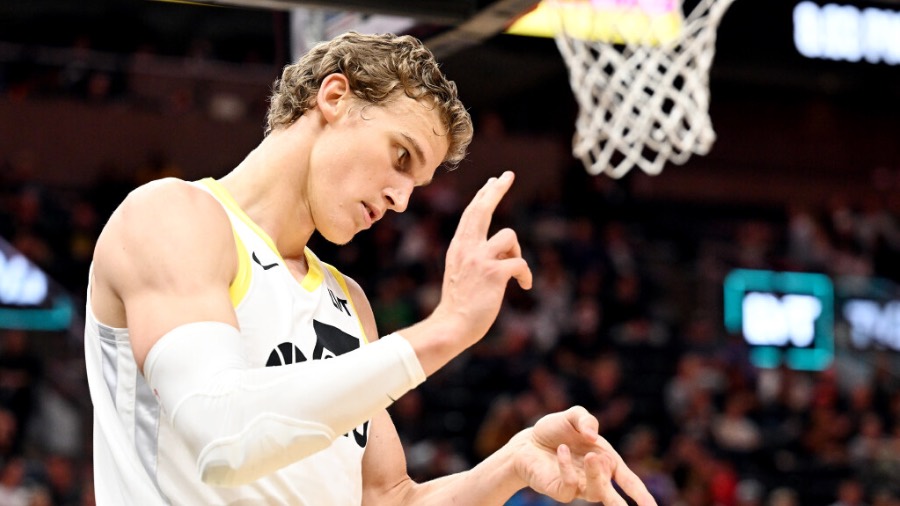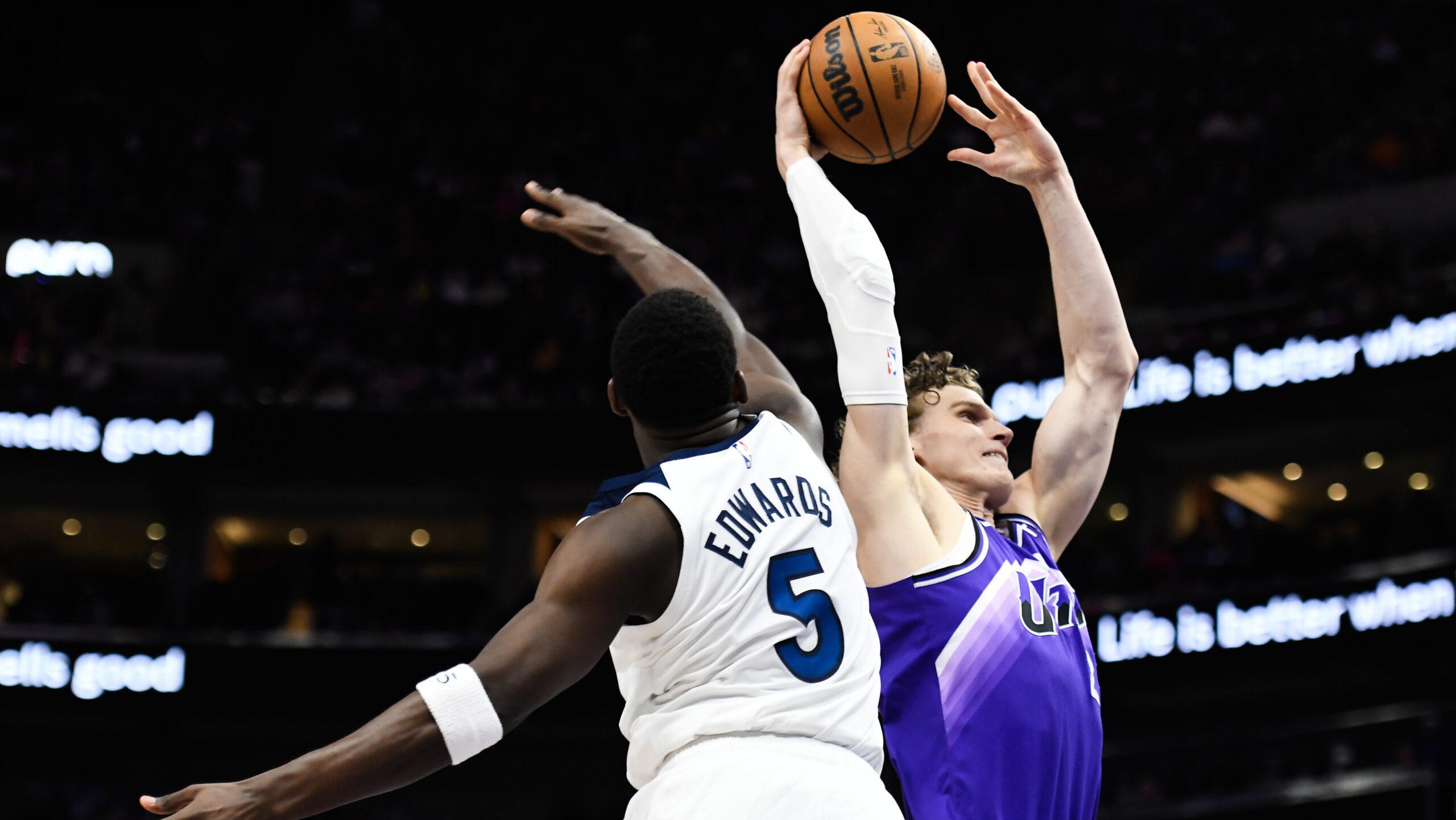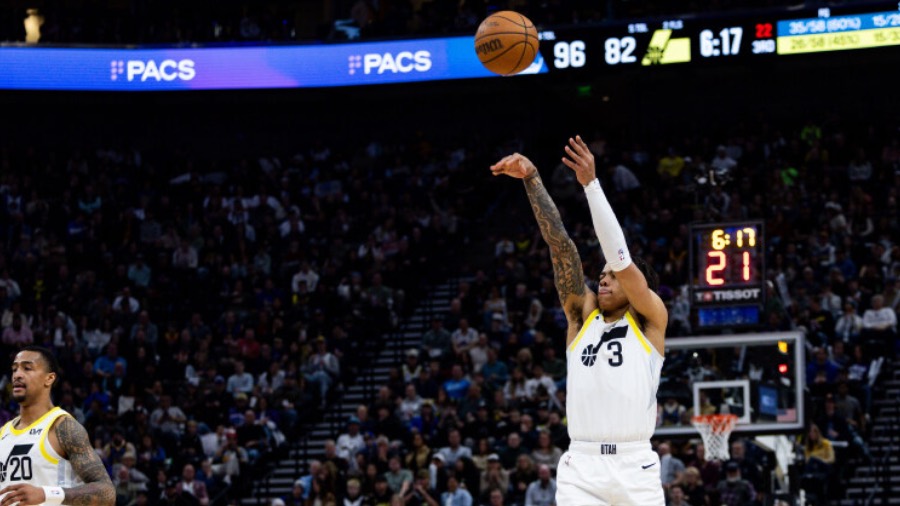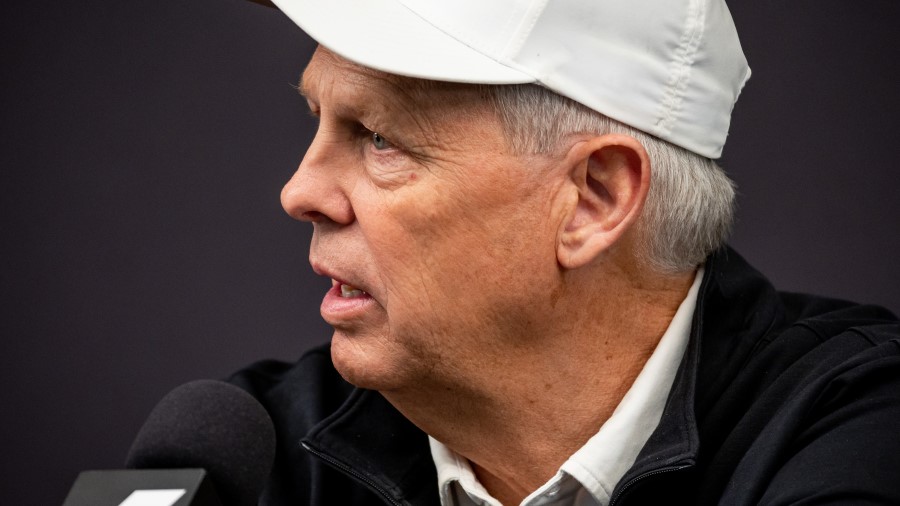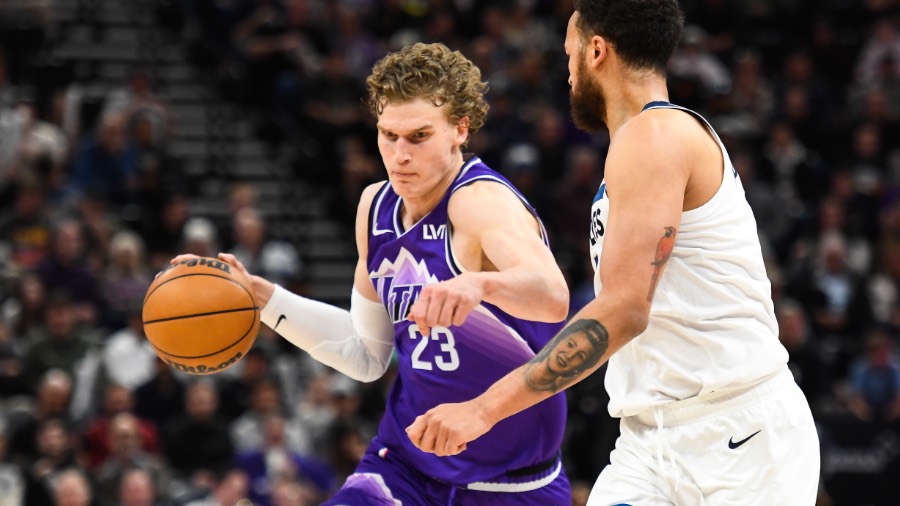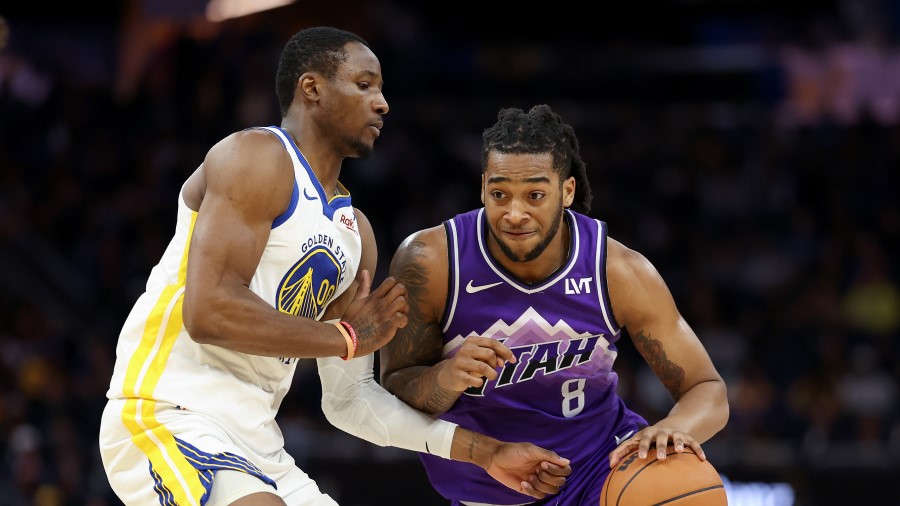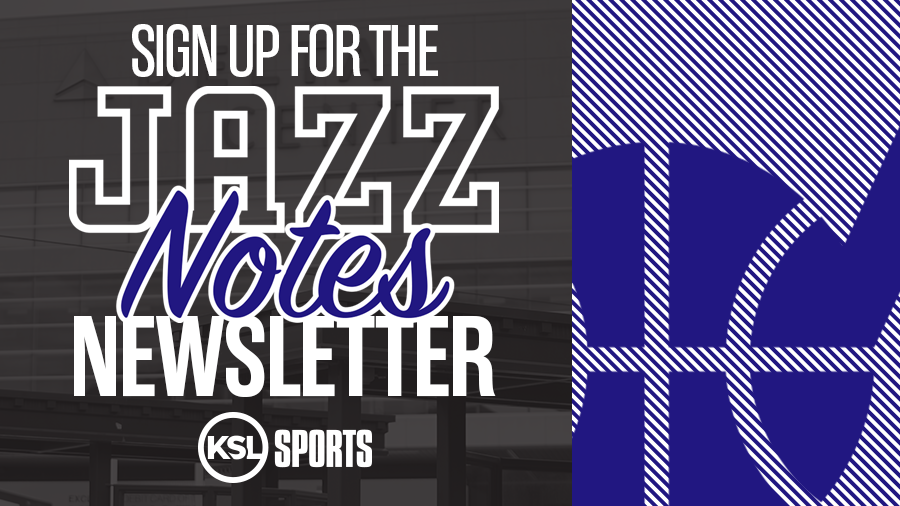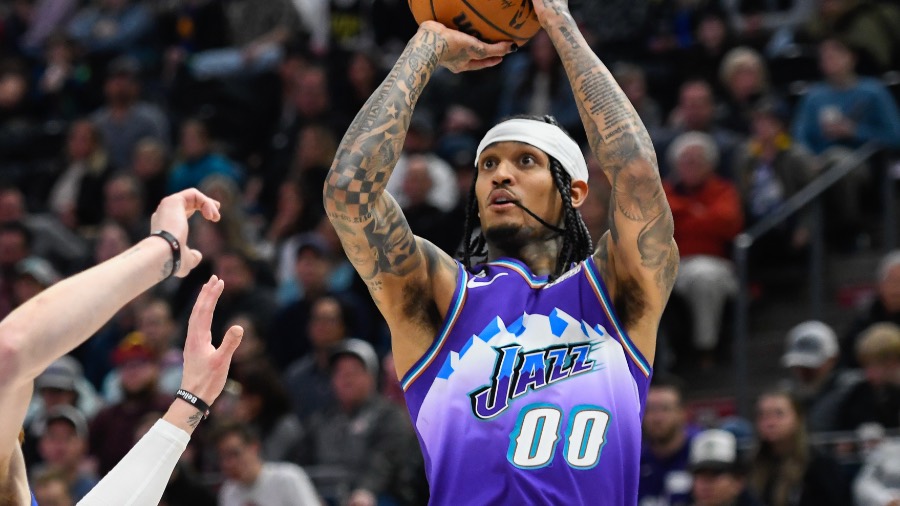The 13 Best Draft Picks In Utah Jazz History
Jun 18, 2020, 3:33 PM | Updated: 4:27 pm
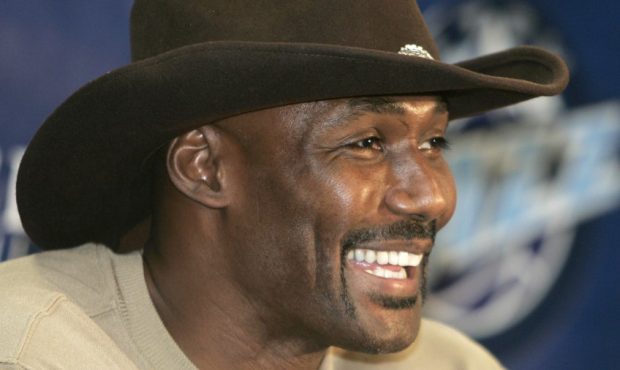
Karl Malone (Photo by George Frey/Getty Images)
(Photo by George Frey/Getty Images)
SALT LAKE CITY, Utah – June 18 marks the 35th anniversary of the Utah Jazz selecting Karl Malone with the 13th overall pick in the 1985 NBA draft. Malone landed in Utah after a standout career at Louisiana Tech and spent 18 of his 19 NBA seasons with the Jazz.
The power forward retired as the league’s second all-time leading scorer, a two-time MVP, and 14-time All-Star. Though Malone never secured an NBA title, he won two Olympic Gold Medals and made 14 All-NBA teams. “The Mailman” was enshrined into the NBA Hall of Fame in 2010.
In honor of the Jazz landing Malone with the 13th pick on this date, these are the 13 best draft picks in franchise history.
13. Mo Williams – 2003 – 47th Pick
The odds of selecting an All-Star anywhere in the draft are slim. According to a recent study by the Herald-Leader, only six percent of players drafted become All-Stars. The further down the draft you go, the less likely it is a team finds a star.
In the second round, it’s nearly impossible. However, the Jazz bucked the trend when they selected Mo Williams out of Alabama with the 47th pick in the 2003 NBA draft.
Forgotten buzzer beater: Mo Williams shocks the Spurs on ESPN in 2012. pic.twitter.com/K83W7DDxgk
— Adam (@prodigyJF) September 5, 2019
Unfortunately for the Jazz, Williams spent just two seasons with the team over two stints, First, as a rookie, and again in 2012-13. Williams became an All-Star in 2009 with the Cleveland Cavaliers and won a title with the team in 2016.
Williams retired with career averages of 13.2 points and 4.9 assists. Meanwhile, the guard earned a hair under $70 million for his career. Not bad for an unheralded second-round pick.
12. Darrell Griffith – 1980 – 2nd Pick
The Jazz selected Darrell Griffith with the second pick of the 1980 draft after he won the National Title at Lousiville. Dr. Dunkenstein earned Rookie of the Year honors and averaged 21 points per game over his first five NBA season.
Though Griffith never earned an All-Star nod, he helped legitimize the Jazz before the arrival of Malone and John Stockton.
Griffith retired with career averages of 16.2 points and 3.3 rebounds in 10 seasons with the Jazz.
11. Bryon Russell – 1993 – 45th Pick
It’s easy to say Bryon Russell was overlooked coming from a small college at Cal State Long Beach. Even more impressive, Russell wasn’t even considered the best player on his college team. The Jazz selected Russell with the 45th pick of the 1993 draft. Teammate Luscious Harris was taken 31st overall.
Here's a few above the rim moments from Bryon Russell. #KSLSportsArchive #TakeNote #NBA @utahjazz https://t.co/bhAvmEpeZG pic.twitter.com/eEoVzffDn7
— Jeremiah Jensen (@JJSportsBeat) April 14, 2020
Russell was a consistent starter with the Jazz over his nine seasons in Utah. The guard/forward brought defensive intensity and reliable shooting to a talented Jazz roster and was a key contributor to back to back NBA Finals runs.
Russell retired with modest averages of 7.9 points and 3.5 rebounds, but played in 13 NBA seasons and earned over $25 million.
10. Thurl Bailey – 1983- 7th Pick
After winning a stunning National Title at North Carolina State, the Jazz selected Thurl Bailey with the 7th pick of the 1983 NBA draft. Bailey would become an early contributor and a steady rotation player throughout his career.
The lanky forward started 68 games as a sophomore but moved to a reserve role with the arrival of Malone.
Bailey’s best seasons came in 1988 and 1989 when he averaged 19.5 points per game as the Jazz sixth man. In total, “Big T” spent nine of his 12 NBA seasons in Utah.
9. Gordon Hayward – 2010 – 9th Pick
The Jazz selected Gordon Hayward with the 9th pick of the NBA draft after he led Butler to a surprise run to the 2010 National Title game. The Jazz used an unprotected pick they traded for years earlier from the New York Knicks, placing Hayward’s selection under a high powered microscope.
Though the forward never because franchise piece many fans had hoped, he did earn an All-Star bid with the Jazz in 2017 while helping lead the team to the postseason.
After shocking the Los Angeles Clippers in the first round of the playoffs, the Jazz were swept by the Golden State Warriors, and Hayward left for the Boston Celtics. Since moving East, Hayward has been plagued by injuries derailing his promising career. However, Hayward beat the odds by earning an All-Star nod, landing him among the team’s best draft picks.
8. Andrei Kirilenko – 1999 – 24th Pick
Though he isn’t the best selection, Andrei Kirilenko may be the most progressive draft pick in Jazz history. The Jazz made Kirilenko the youngest European player ever drafted in 1999, though he stayed in Russia for two seasons before moving to the states.
“AK-47” became the face of the Jazz in 2004 after Stockton and Malone left the team and proved to be one of the most exciting players in the NBA.
Andrei Kirilenko became one of the few players to garner at least 5 points, 5 assists, 5 rebounds, 5 steals and 5 blocks in one game on December 3, 2003. He is one of two players in NBA history to achieve a 5×5 more than once.#StealoftheWeek | @LittleGiant pic.twitter.com/PRo6c9LJxk
— utahjazz (@utahjazz) August 30, 2019
However, injuries changed Kirilenko’s career path after his 2004 All-Star selection and turned him into an overpaid role player, rather than a perennial All-NBA threat.
The do-it-all forward retired in 2015 with career averages of 11.8 points, 5.5 rebounds, 2.7 assists, 1.8 blocks, and 1.4 steals per game.
7. Deron Williams – 2005 – 3rd Pick
After building a team with Kirilenko, Carlos Boozer, and Mehmet Okur, the Jazz needed a point guard that could provide leadership to a talented but underperforming team. On draft night, the Jazz traded up from the sixth pick to the third pick and had to choose between guards Deron Williams and Chris Paul.
Though the Jazz ultimately made the wrong selection, Williams was no slouch in a Jazz uniform. The big-bodied guard earned two All-Star nods with the Jazz before being traded to the New Jersey Nets in 2011. Williams led the Jazz to their most recent Conference Finals appearance in 2007, but couldn’t find the same success with the Nets.
Williams retired in 2017 with career averages of 15.7 points and seven assists, while earning three All-Star nods.
6. Mark Eaton – 1982 – 72nd Pick
Considering he was selected with the 72nd pick in the 1982 draft, Mark Eaton has an argument as the most undervalued draft choice in Jazz history. Eaton was selected by the Phoenix Suns in 1979 but opted to attend UCLA instead.
Eaton would amass one All-Star bid, two Defensive Player of the Year awards, and five All-Defensive Team selections over his 11-year career.
The “Man-Mountain” still owns the single-season blocks per game record at a staggering 5.6 in 1985, despite retiring in 1993.
5. Donovan Mitchell – 2017 – 13th Pick
Though Donovan Mitchell doesn’t have the same pedigree as a player like Eaton, his impact on the floor is as good as any player in Jazz history through three NBA season. Mitchell has surpassed the 20 points per game mark each of his first three-years and has led the team to the playoffs all three seasons.
🕷 @spidadmitchell's biggest throwdowns 😤 pic.twitter.com/O85EF53V9z
— NBA (@NBA) May 12, 2020
While the Jazz hopes of taking the next step as contenders rest on Mitchell’s shoulders, the guard shows no signs fo slowing down.
After earning his first All-Star nod, Mitchell continues to build on his status as one of the premier young players in the NBA. Mitchell could one day find himself atop this list if he can bring a championship to the Jazz.
4. Rudy Gobert – 2013 – 27th Pick
Rudy Gobert stands as a testament to the Jazz patience and player development program. Selected as a raw prospect with high potential, Gobert has surpassed even the most ambitious projections for his career.
Gobert has earned two Defensive Player of the Year awards, an All-Star nod, two All-NBA selections, and three All-Defensive selections.
.@IAMQUEENLATIFAH’s reaction to that Gobert dunk 😅 #NBAAllStar pic.twitter.com/1Vxd77CYSm
— NBA on TNT (@NBAonTNT) February 17, 2020
While Gobert’s future with the team remains uncertain, he’s inarguably risen to become one of the best draft picks in team history.
3. Paul Millsap – 2006 – 47th Pick
The odds of finding an All-Star after the 45th pick in the draft is roughly three percent. Finding a four-time All-Star is even smaller. That’s exactly what the Jazz did when they selected Paul Millsap with the 47th pick in 2016, though none of his All-Star bids came in Utah.
The blue-collar forward’s skill development rivals any player in NBA history, a testament to his work ethic and talent level. Originally a rebounding dynamo at Lousiana Tech, Millsap developed into a three-point threat and playmaking power forward.
Letting Millsap leave the roster is one of the biggest mistakes in recent Jazz history. Now in his 14th season, Millsap continues to perform at a high level with the Denver Nuggets.
2. John Stockton – 1984- 16th Pick
There may be no more unheralded player in NBA draft history than John Stockton. Selected out of Gonzaga with the 16th pick of the 1984 draft, Stockton was an afterthought in the first round.
23 years ago, John Stockton drained a buzzer-beating three to send the Jazz to the NBA Finals 💦 pic.twitter.com/meLOhW3xJF
— ESPN (@espn) May 29, 2020
19 years later, Stockton had become the NBA’s All-time assist and steals leader. During his career, Stockton earned 10 All-Star nods, 11 All-NBA selections, an All-Star MVP, five All-Defensive teams, and was named one of the 50 Greatest Players in NBA history.
Stockton was enshrined to the Basketball Hall of Fame in 2009. Today, he stands bronzed in front of the Jazz home arena.
1. Karl Malone – 1985 – 13th pick
Truthfully, Malone would top this list even if he were the number one overall pick in 1985. Instead, the Jazz landed Malone with the 13th pick of the first round.
Left block, right shoulder, bucket.@TheDeliverer_32 x #NBATogetherLive pic.twitter.com/5YkboIX5yu
— NBA (@NBA) May 30, 2020
Over his 19 year career, Malone earned two MVP selections, 14 All-Star nods, including two All-Star MVP awards. Additionally, Malone was named to 14 All-NBA teams and four All-Defensive teams. In 1996, the power forward selected as one of the 50 Greatest Players in NBA history. Durin the ’90s, Malone led the Jazz to back to back Finals appearances.
In 2010, Malone was inducted to the Basketball Hall of Fame. And, like Stockton, has a statue at Vivint Smart Home Arena.

